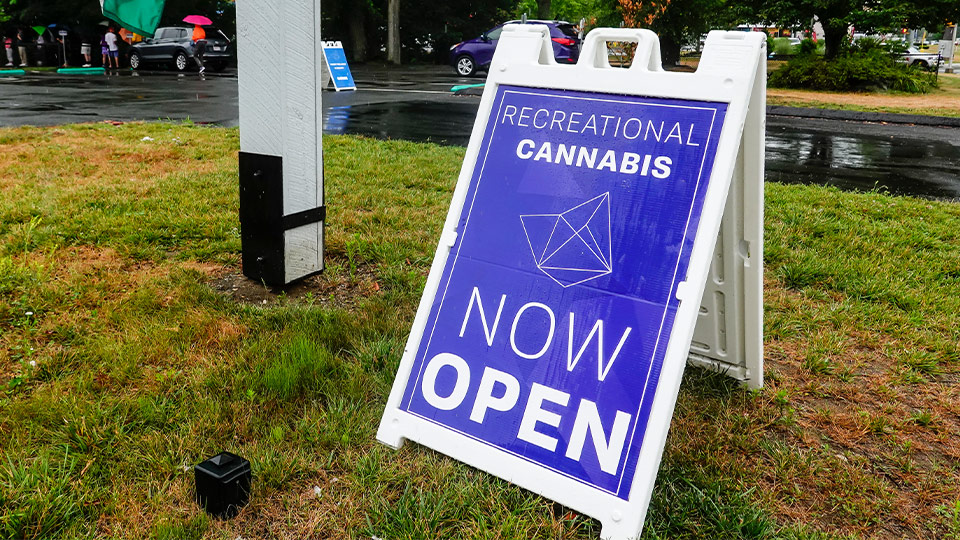Last week marks two months since New Jersey authorized recreational cannabis sales. So far, the market has brought in millions in sales. In the first day of sales, the 12 participating dispensaries brought in $1.9 million in sales. In the first month, the New Jersey Cannabis Commission (CRC) reported $24.2 million in sales. 16 dispensaries are now open across the state, but employers are still awaiting updated workplace guidance from the CRC. With the ongoing market expansion and lingering questions, it is a good time to review New Jersey Cannabis Regulatory, Enforcement Assistance, and Marketplace Modernization Act (“CREAMMA”) workplace protections and what they mean for employers. Despite the lack of guidance, employers can still take steps to ensure that workplace policies do not violate employees’ rights under CREAMMA.
CREAMMA and the workplace
New Jersey is only one of six states and the District of Columbia, that have legalized recreational cannabis, to include significant employment rights protections. Prior to the passage of CREAMMA in 2021, the Jake Honig Act gave medical marijuana program participants the “opportunity to present a legitimate medical explanation for a positive test result” and prohibited employers from taking adverse action employee who participated in the program. CREAMMA includes similar protection for recreational users with the exception of employers/employees under federal contracts. The Act prohibits employers from taking adverse action against employees or applicants because of cannabis use outside of the workplace. Employers maintain the right to maintain a cannabis free workplace – including being able to discipline or terminate accommodate who come to work under the influence if in violation of employment policies. Employers:
“may require an employee to undergo a drug test upon reasonable suspicion of an employee’s usage of a cannabis item while engaged in the performance of the employee’s work responsibilities, or upon finding any observable signs of intoxication related to usage of a cannabis item, or following a work-related accident subject to investigation by the employer”
or may still conduct random drug tests. (N.J.S.A. 24:6I-52(a)(1)). Employers may use the results of tests in taking employment action.
But how can an employee use a positive drug test to take employment action? Drug testing alone cannot not distinguish between off site use and intoxication or use at work. Depending on use, THC can stay in your system for up to a month. Fortunately, the New Jersey legislature foresaw the difficulty in determining whether a positive drug test alone can indicate a violation of an employer’s cannabis free workplace policies. The law, as written, requires employers who wish to test employees for suspected violation of workplace policies to conduct “a physical evaluation in order to determine an employee’s state of impairment” (N.J.S.A. 24:6I-52(a)(1)). The evaluation, by law, is to be done by a Workplace Impairment Recognition Expert certified employer or contractor. (N.J.S.A. 24:6I-52(a)(2)). But the CRC has yet to implement a viable program. Under the current rules and regulations promulgated by the CRC, until the Commission is able to “develops standards for a Workplace Impairment Recognition Expert certification, no physical evaluation of an employee being drug tested in accordance with N.J.S.A. 24:6I-52 shall be required.” The rules, filed August 2021, expire August 2022. The current CRC “Workplace & DUI Laws” webpage has very little guidance for employees and employers, simply stating that employers may “perform random drug tests for intoxication at work, and may test anyone who appears to be impaired on the job, or who has been in a workplace accident.”
How does New Jersey’s workplace related cannabis law compare to other states?
Recreational cannabis laws vary significantly from state to state. The same is true within those states that have extend protections to employees. New York, for example, has done away with testing all together. While employers are able to enforce a cannabis free workplace, they must rely on “articulable symptoms of impairment.” Employers are encouraged to consult counsel to avoid running a foul of state and federal disability laws but may rely on a non-exhaustive list of attributable symptoms of impairment to determine whether an employee has violated their policy.
What is WIRE certification and why has the CRC held off from establishing specific rules
The idea for the Workplace Impairment Recognition Expert (“WIRE”) training comes from the existing Drug Recognition Expert program (DRE). The CRC by law was meant to consult the Police Training Commission to establish rules and anyone who had already undergone DRE may be granted WIRE certification. (N.J.S.A. 24:6I-52(a)(2)) While the CRC is working to establish standards for a WIRE program, DRE and the analysis it employs are currently being challenged in the New Jersey Supreme Court. The ruling in State v. Olenowski was remanded to a Special Master to determine if DRE testimony meets the evidentiary standard that it be generally accepted by the scientific community to admittance. The Office of Attorney General, ACLU, ACDL and others filed amici questioning the reliability of DRE evidence based on a variety of scientific research. The CRC may be taking time to ensure they have done their research and may be waiting for the Olenoswki ruling.
Where do employers stand?
While some business groups and employers are concerned about safety in accident prone workplaces without CRC rules, others may simply be wondering how to craft cannabis free workplace policies that do not violate employees’ rights. The short answer is both will have to wait a little longer until the CRC issues a new set of rules. Workplace guidance may be coming with the expiration of the current rules in August. But the CRC may also hold off on specifics until the New Jersey Supreme Court weighs in on DRE evidence or until they sufficient research to support a certificate program. Appearing before the NJ Senate Judiciary Committee on May 12, the CRC executive director while highlighting the work to be done acknowledge the “Commission is still in its infancy as a State agency” and would be continuing to implement new measures. For now employers should work with their counsel to create employment policies that are CREMMA compliant despite the uncertainty.



